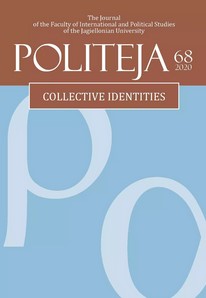CLASS RESENTMENT AND LEADERSHIP. MANIPULATION OF NEGATIVE EMOTIONS IN POLITICAL LEADERSHIP PRACTICES
CLASS RESENTMENT AND LEADERSHIP. MANIPULATION OF NEGATIVE EMOTIONS IN POLITICAL LEADERSHIP PRACTICES
Author(s): Filip PierzchalskiSubject(s): Culture and social structure , Social Theory, Politics and Identity, Identity of Collectives
Published by: KSIĘGARNIA AKADEMICKA Sp. z o.o.
Keywords: political leadership; class resentment; ressentiment; negative emotions; political emotions; collective emotions; collective identity; affective dimension of leadership;
Summary/Abstract: The aim of this paper is to discuss the emotional plane in the context of the formation of leadership asymmetry, especially the instrumental use of grudge and resentment by a leader in the process of political leadership. The starting point to explaining the instrumentalisation of the affective sphere in politics, interpreted as a source of political leadership, will be the critical argumentation in relation to the assumptions of the theory of rational choice about the stability and predictability of political process. This article attempts a critical look at the rationality of leadership practices in politics, where it is emphasized that the individual and collective structures – including collective identities – of beliefs on which the leadership process is formed, consolidated and based, are not permanent, but increasingly dependent on irrational manipulative strategies. Hence, this paper will analyse the mechanism of creating or reactivating negative emotions by the leader in a given cultural and structural environment as the reasons for the emergence and legitimacy of supra-individual resentment or the functioning of class resentment, which translates into the escalation of hostility in a stratified society, as well as into followers’ receptivity; more broadly – into the form and shape of effective political leadership.
Journal: Politeja - Pismo Wydziału Studiów Międzynarodowych i Politycznych Uniwersytetu Jagiellońskiego
- Issue Year: 17/2020
- Issue No: 68
- Page Range: 63-82
- Page Count: 20
- Language: English

